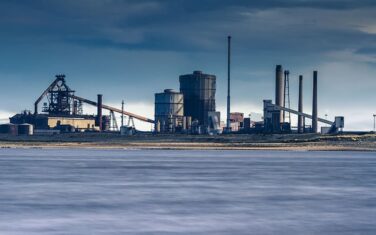Supporting the development and success of an industrial heat pump market through the develeopment of a standardized, modular, flexible compression heat pump technology.
Incentive
High temperature industrial heat pumps are an emerging technology that play a decisive role in providing a sustainable solution for industrial heat demand up to 200°C. Previous ISPT and TKI E&I projects (CATCH-IT, STEPS) have demonstrated the operation of pilot scale compression heat pumps for industrial applications, however CAPEX costs in the order of 500 €/kWth proved to be prohibitive for market introduction.
Market and cost reduction studies in the CRUISE project (ongoing) revealed that typical industrial capacities are 1-10 MWth and a lack of standardization for these units and the use of a flammable refrigerant were the most important cost determining factors. However, use of a non-flammable synthetic working medium (HFOs) still poses concerns about not being a long term sustainable solution.
The development and success of an industrial heat pump market is indeed dependent on the ability to produce a standardized, modular, flexible compression heat pump technology on a scale level of 1-10 MWth that uses a natural refrigerant and has low CAPEX.
Objectives
The specific goals to be achieved within the duration of the FUSE project are defined as follows:
- Develop a full-scale (1-2 MW), steam producing, industrial heat pump using natural working media that uses waste heat sources in the range of 60°C-90°C and produces medium pressure steam (range of 2-5 bar) with a specific investment cost of < 200 €/kWth (excluding integration).
- Develop a modular compression heat pump design utilizing a limited number of standardized components that can be configured in numerous ways to cover > 70% of the industrial heat pump market. This enables series production and therewith low costs (< 200 €/kWth) and offers still flexibility with respect to operating conditions (power, temperature).
- Establish a Dutch manufacturer (Heinen & Hopman) for the standardized, modular, flexible compression heat pump.
- Establish heat pump performance under a variety of simulated (industrial process data) static and dynamical conditions at ECN part of TNO, and under field test conditions at the DOW Terneuzen site.
Activities
Within this project, a consortium of Dutch partners will cooperate to accelerate the uptake of industrial heat pumps using natural working media. A full scale (1-2 MWth) compression heat pump is designed, constructed and tested. Its performance will be characterized through testing on a specifically created industrial heat pump test infrastructure at ECN part of TNO that is able to simulate a variety of process conditions.
In addition, the unit will be field tested at DOW Terneuzen. The heat pump is designed using a modular approach utilizing a limited number of standardized components that can be configured in numerous ways to cover a large share of the industrial heat pump market. Partner Heinen & Hopman will implement the necessary measures for establishing a Dutch manufacturer for industrial, steam producing heat pumps.
Results
Successful completion of this project results in an industrial compression heat pump product for a Dutch manufacturer at scale levels of 1-10 MW that can be produced in a standardized, modular, flexible, and cost effective way and uses a natural refrigerant. This product is able to serve a large share of the industrial heat pump market. As such, this project contributes to economic growth, such as the creation of new jobs in the heat pump sector and increasing the competitiveness of Dutch industry. Finally, the uptake of industrial heat pumps contributes to the sustainability of Dutch industry through large reductions in both CO2 emissions and primary energy consumption.
You might also be interested in
Acknowledgement & partners
This project is co-funded with subsidy from the Topsector Energy by the Ministry of Economic Affairs and Climate Policy.

















